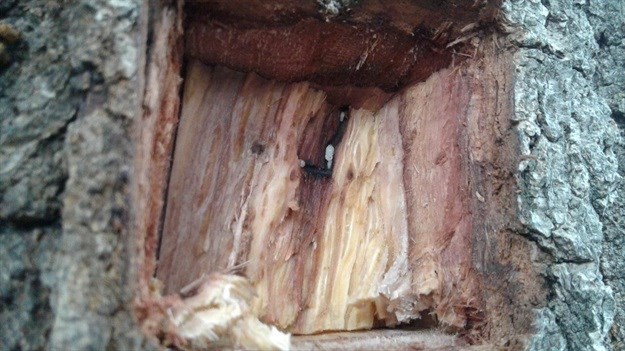
Top stories






More news





ESG & Sustainability
#Sona2026: President announces crisis committee to tackle SA's water challenges











Polyphagous shot hole borer (PSHB) has been reported and confirmed in the northern suburbs of Helderrant, La Sandra and Worlds View in Somerset West. The City of Cape Town anticipates that more locations will be reported as public awareness increases and trees on properties and streets within the vicinity of the initial sighting are inspected.
The PSHB invasion has resulted in the death of thousands of trees in other parts of the country. The beetles attack various tree species by digging tiny tunnels to lay eggs. They also carry a Fusarium fungus on their bodies which the beetle ‘farms’ as its food source. Eventually the fungus blocks the tree’s internal transport system and depending on the tree species and level of infestation, this leads to the death of the tree.
PSHB attacks a variety of tree species which include maples, oak, avocado and plane trees. Some acacias, willows, and indigenous trees can also be affected. These species include some of the most common and valuable trees in Cape Town, and the threat posed to the indigenous species is a serious risk to ecosystems.

Although symptoms differ among species, the most common symptoms of infected trees are:
Currently there is no fully effective or registered treatment for either the insect, or the fungus. Severely infested trees are removed and destroyed in order to contain the spread of the disease. Special care has to be taken throughout the entire removal process (i.e. cutting down, chipping, transporting and disposal). Minor infestations on some species which are non-reproductive hosts, may be monitored or treated.
"Members of public are urgently requested not to cut down infested trees and transport infested material to any dump or tip sites. This may spread the fungus into unaffected areas," said the City’s Mayoral Committee Member for Community Services and Health, Councillor Zahid Badroodien.
Rather, sightings should be reported at https://www.capetowninvasives.org.za/shot-hole-borer. Alternatively, call 0860 103 089 and state that a possible PSHB case is being reported. The exact location of the sighting is very important.
"Residents should keep an eye on their own trees, but also those on the properties of friends and relatives, and help us spread awareness about the threat. There is still time to contain the risks, if we collectively look for signs in distressed trees and report sightings immediately to specialised staff at the City, who are trained to act quickly in order to save our trees," said the City’s Mayoral Committee Member for Spatial Planning and Environment, Councillor Marian Nieuwoudt.
To read more about the invasive beetle, visit https://bit.ly/2SfuySw. Further information is also available at www.fabinet.up.ac.za/index.php/research/7